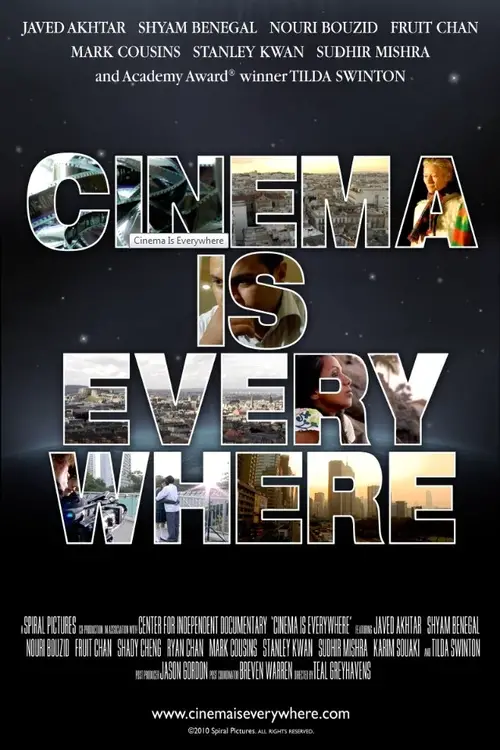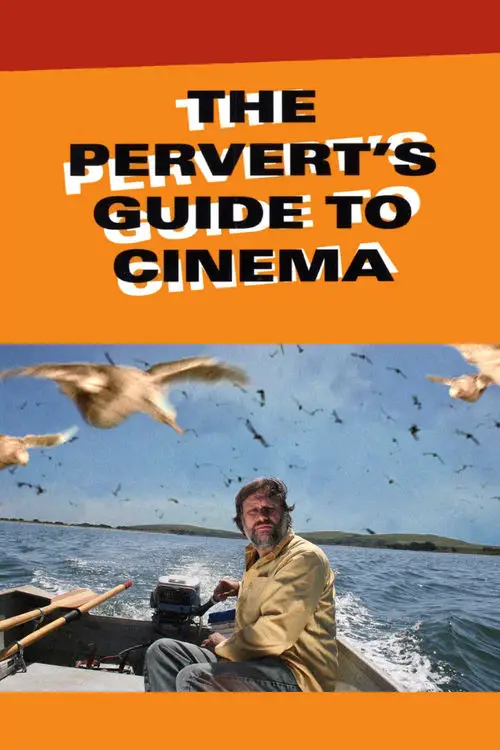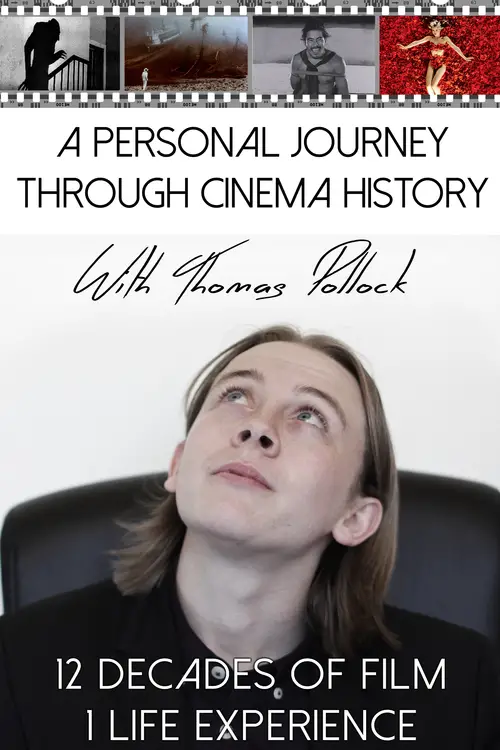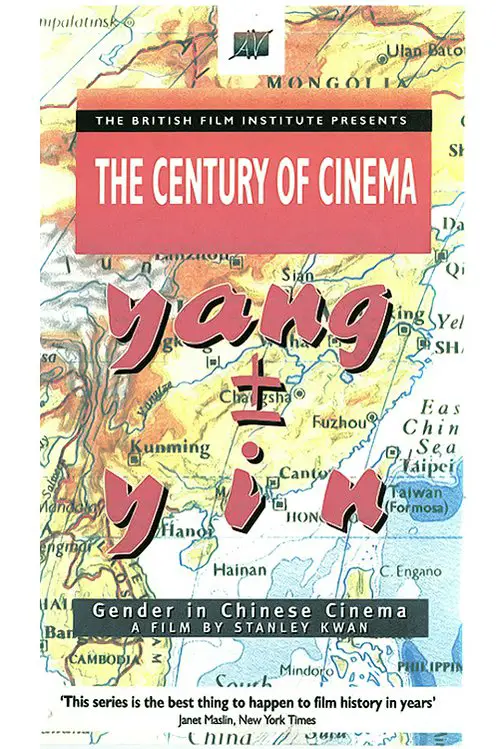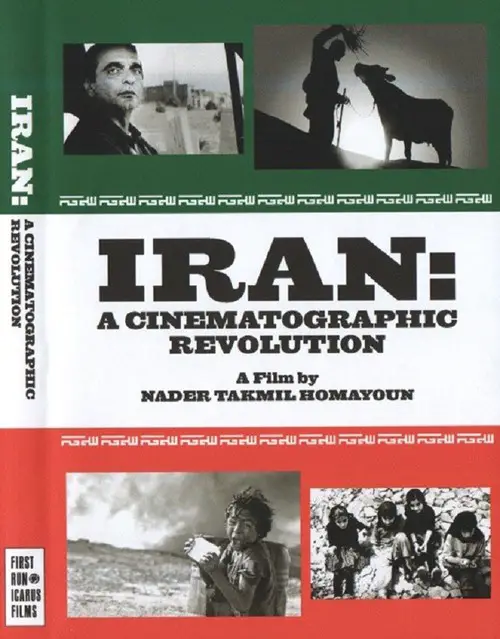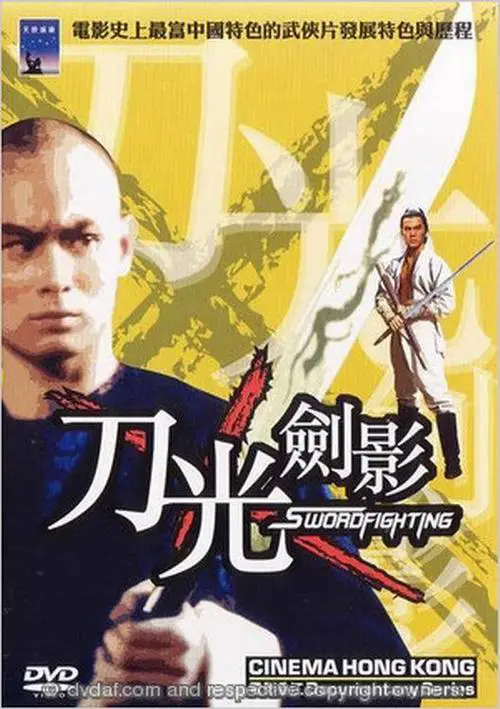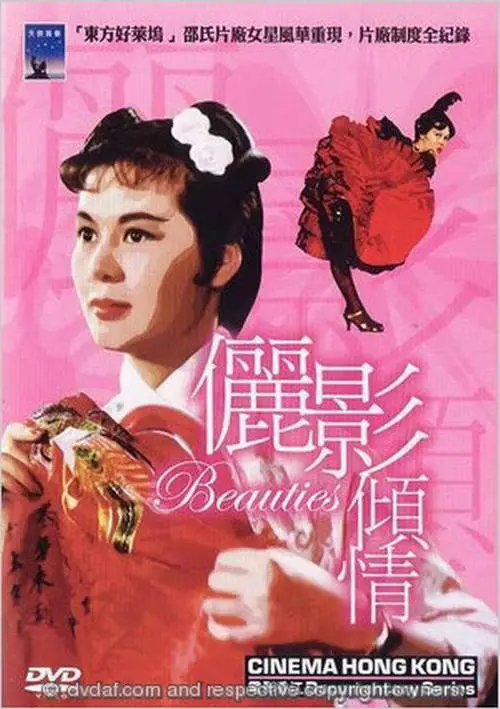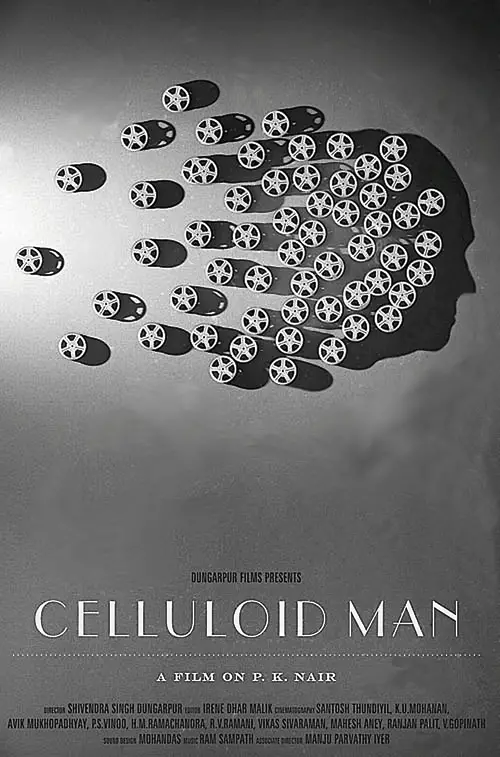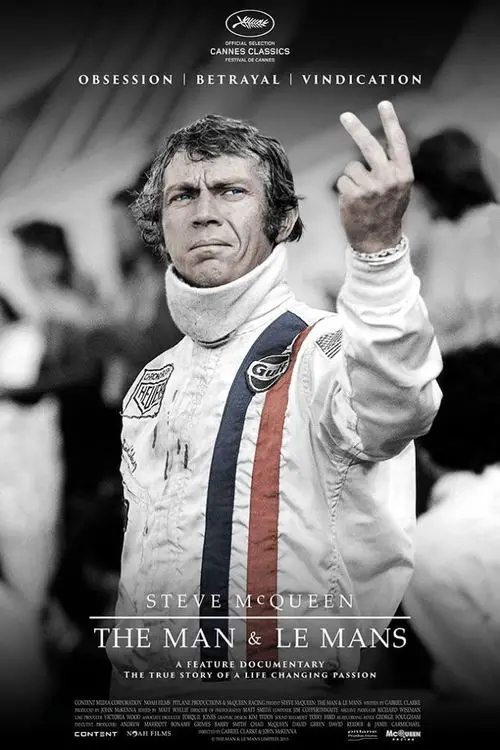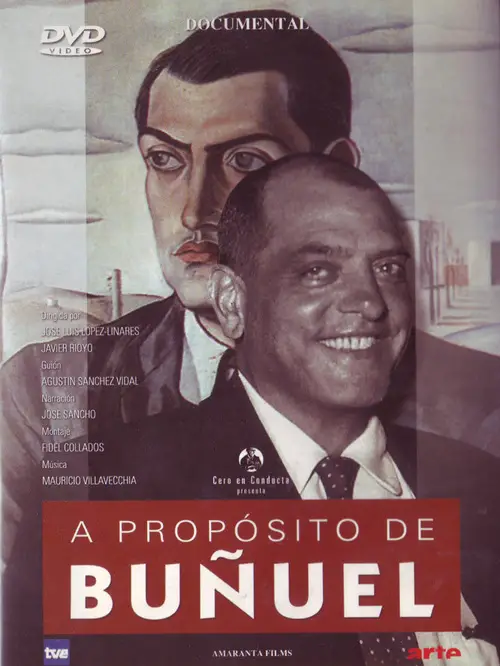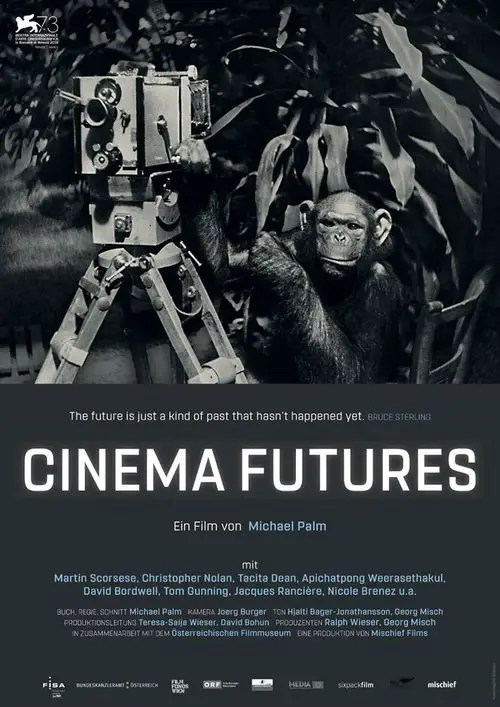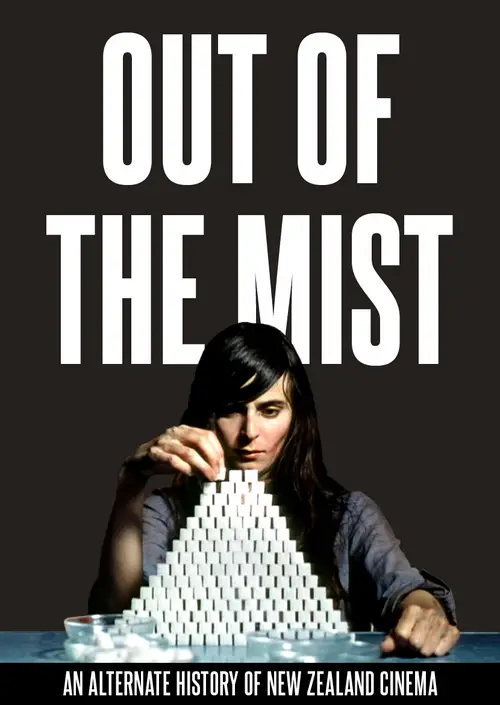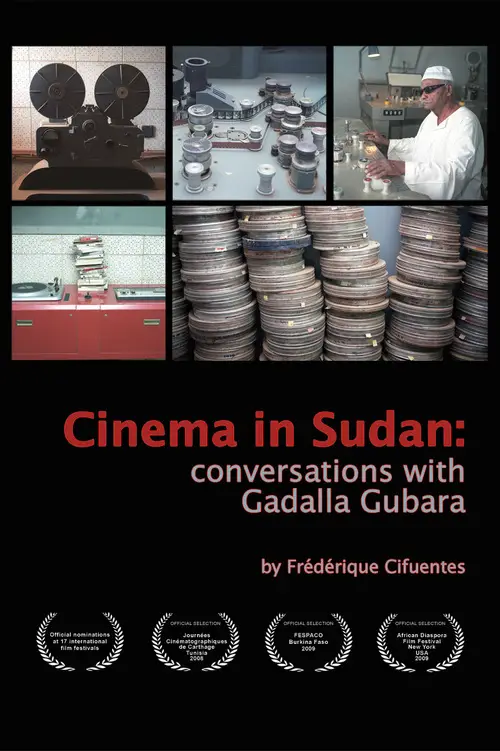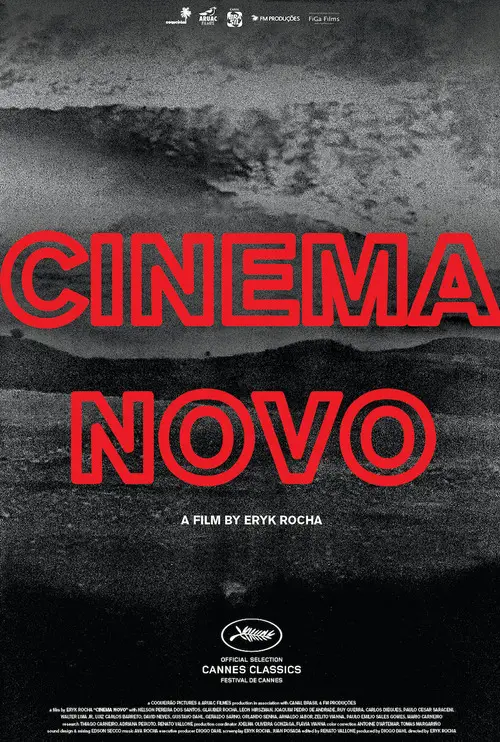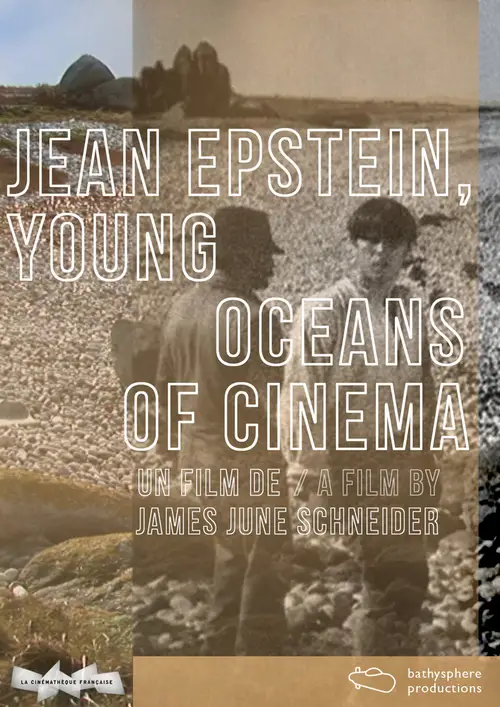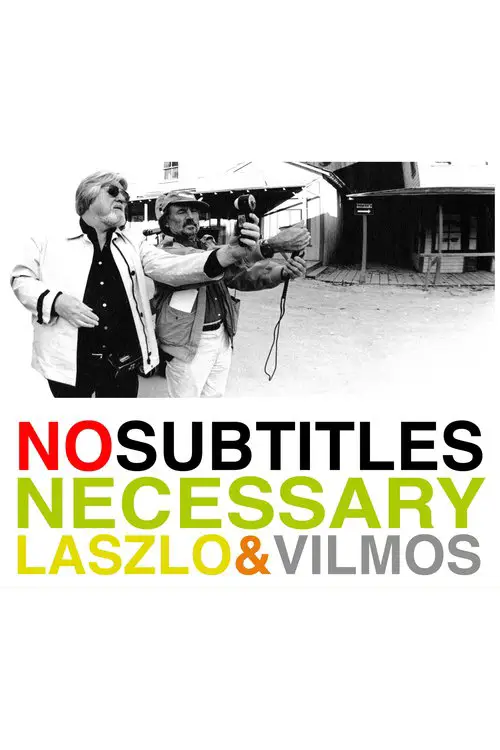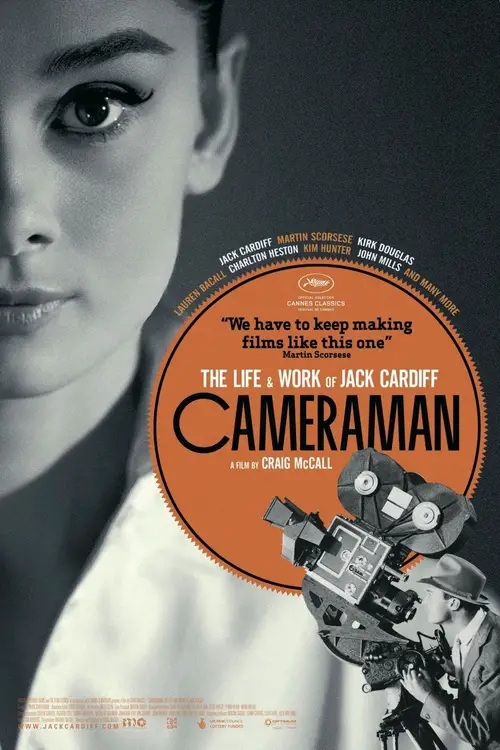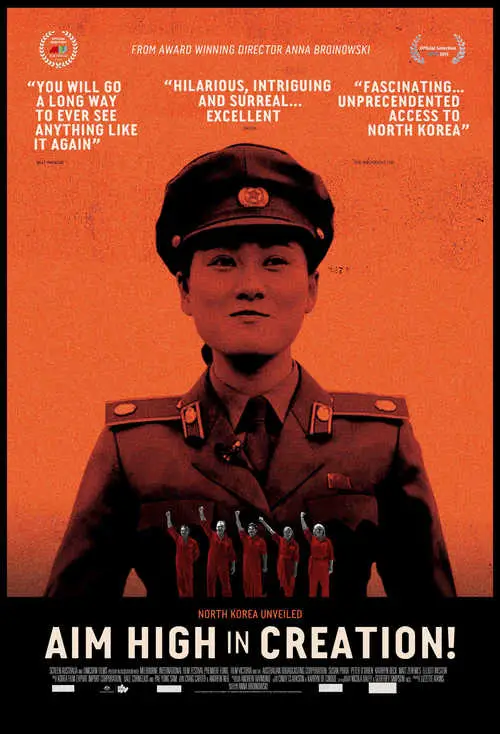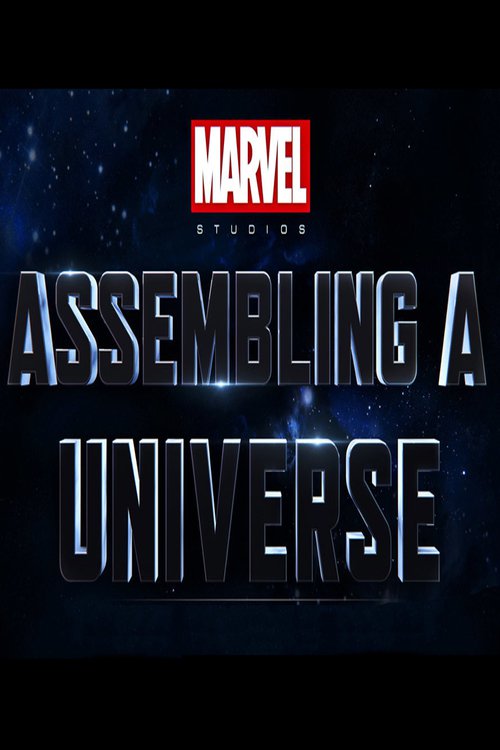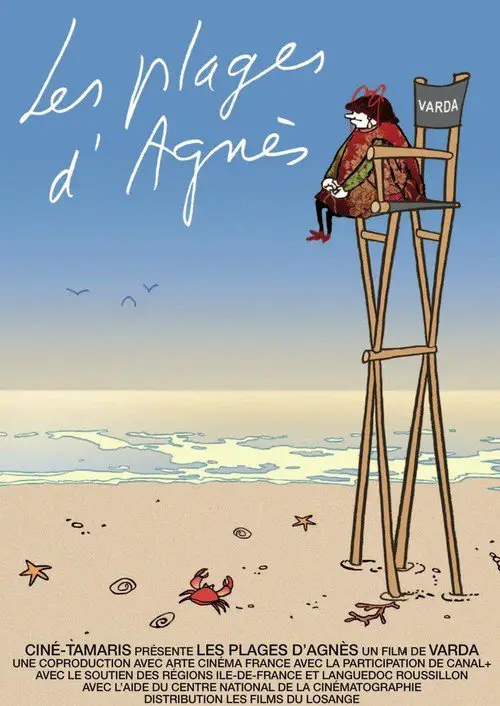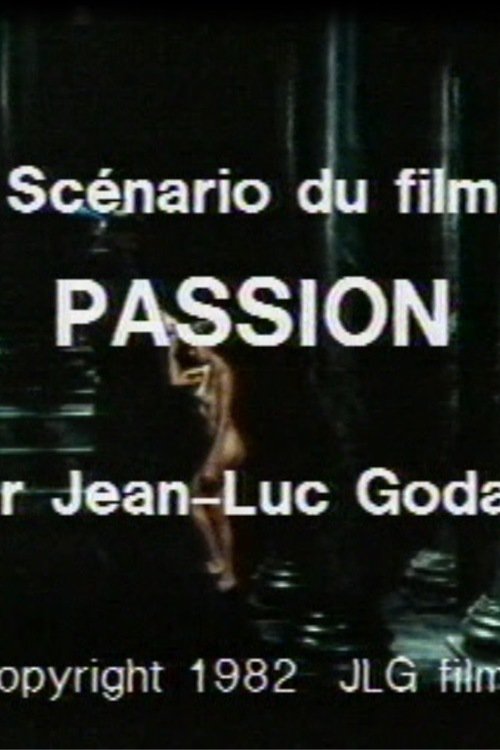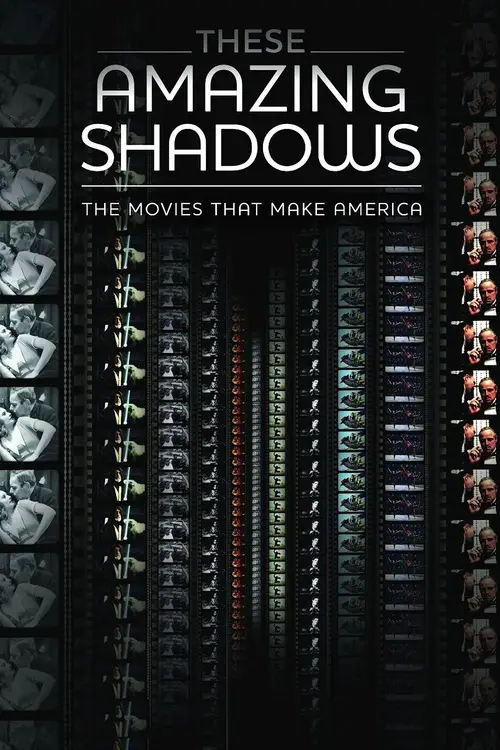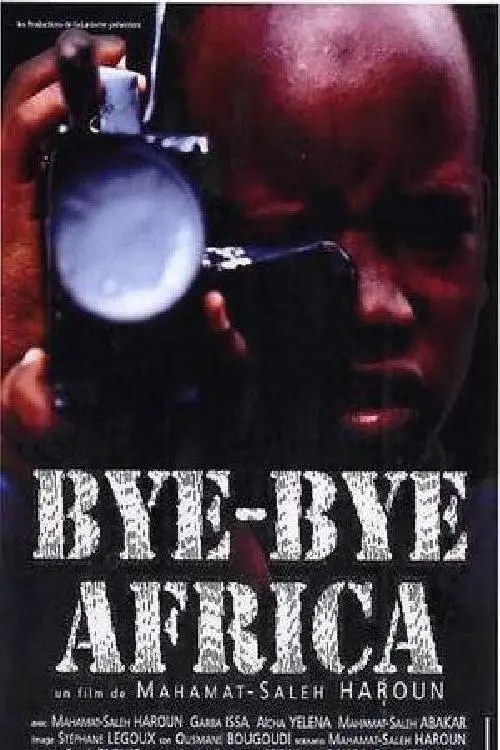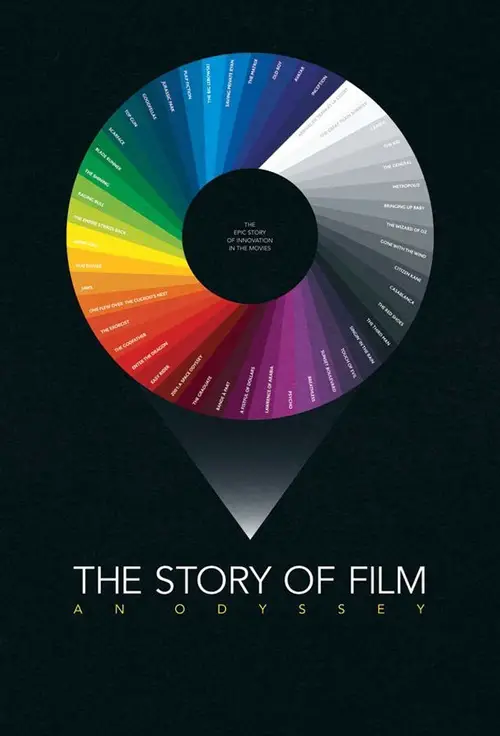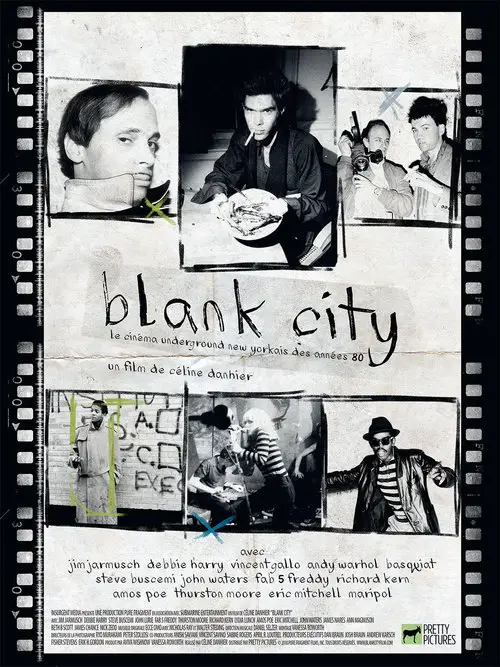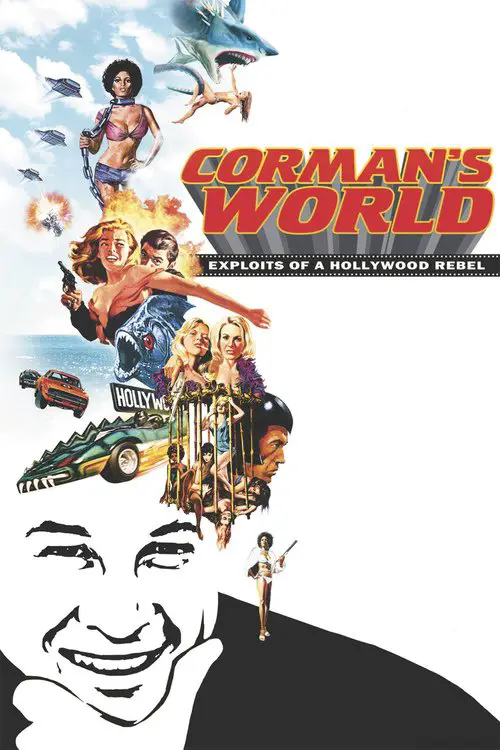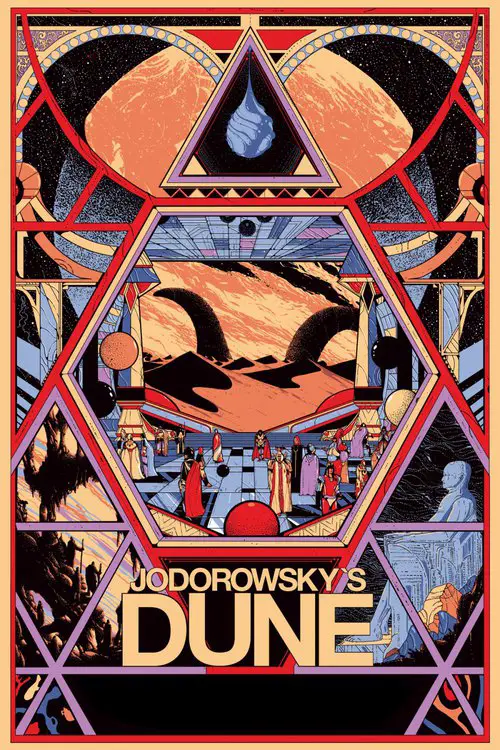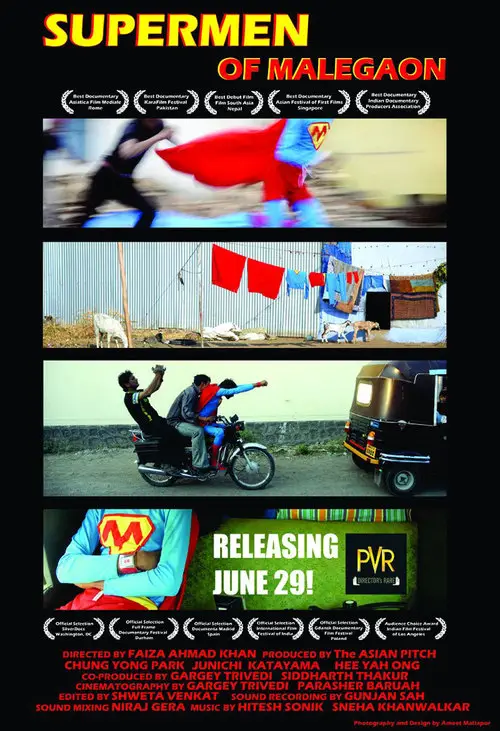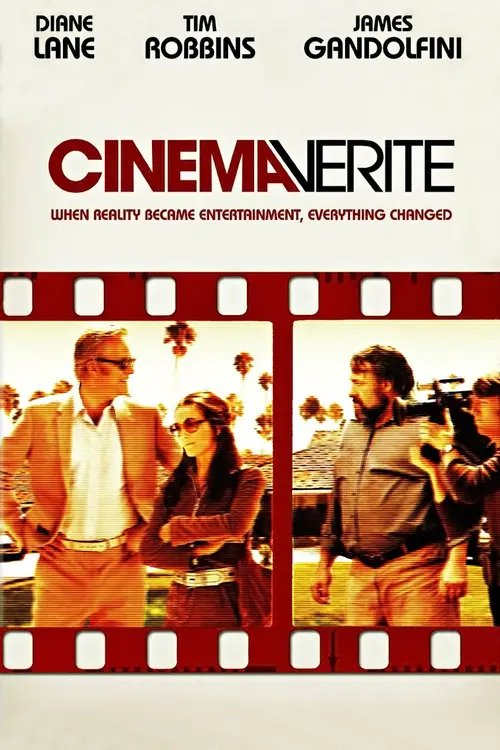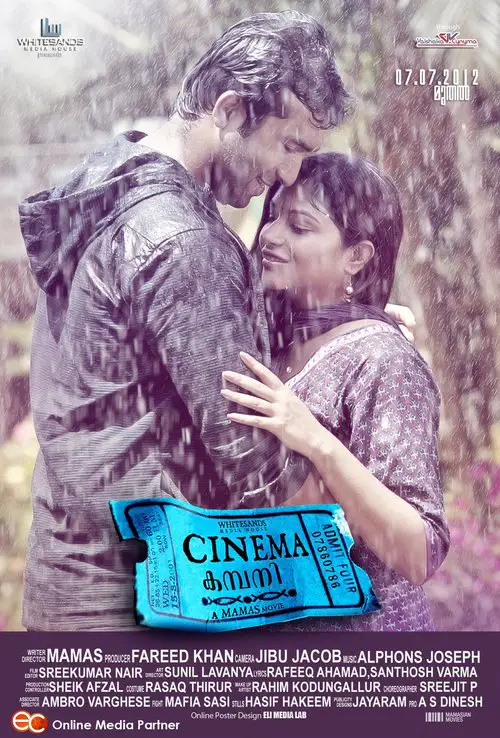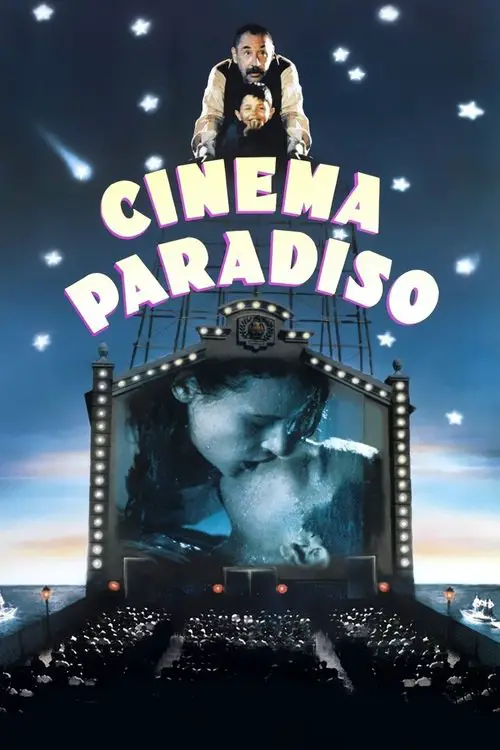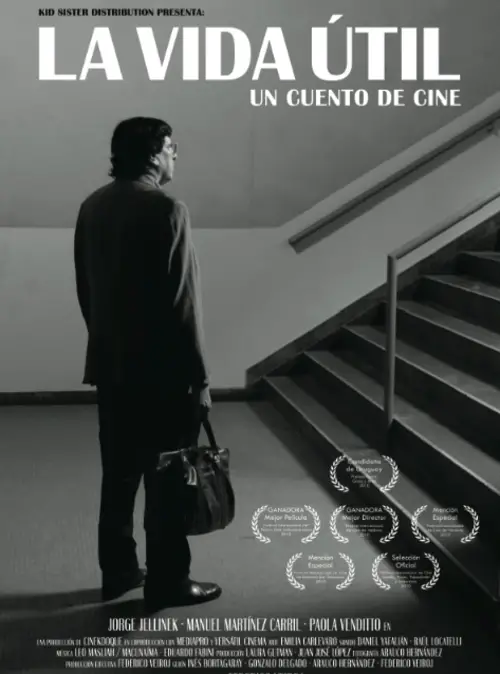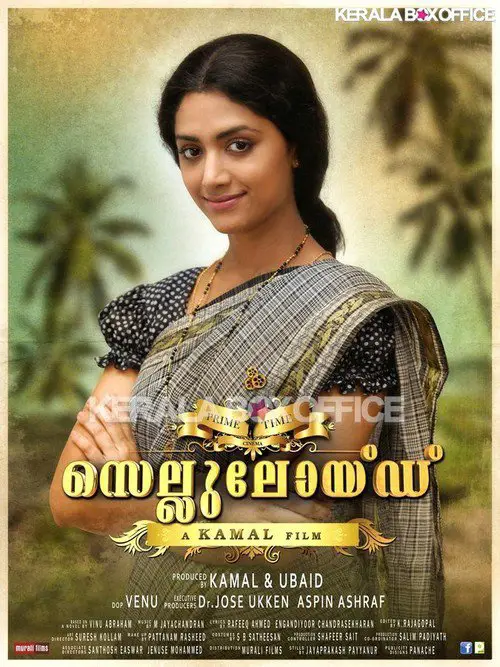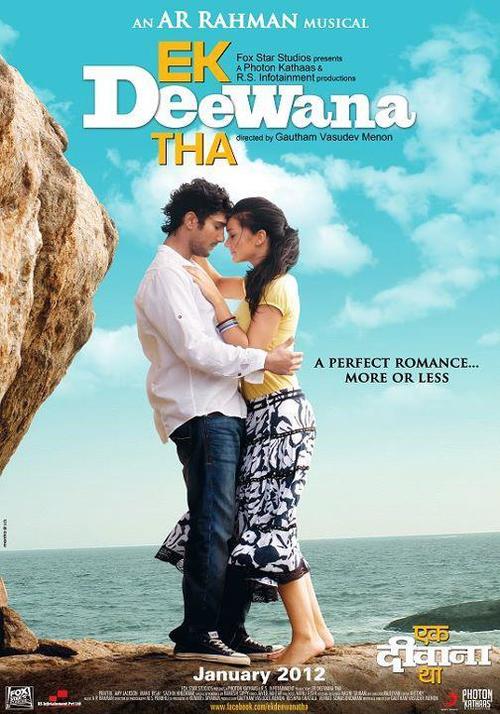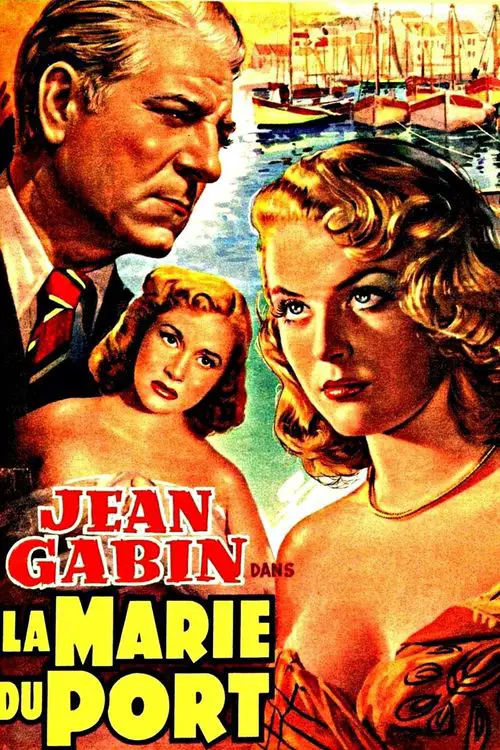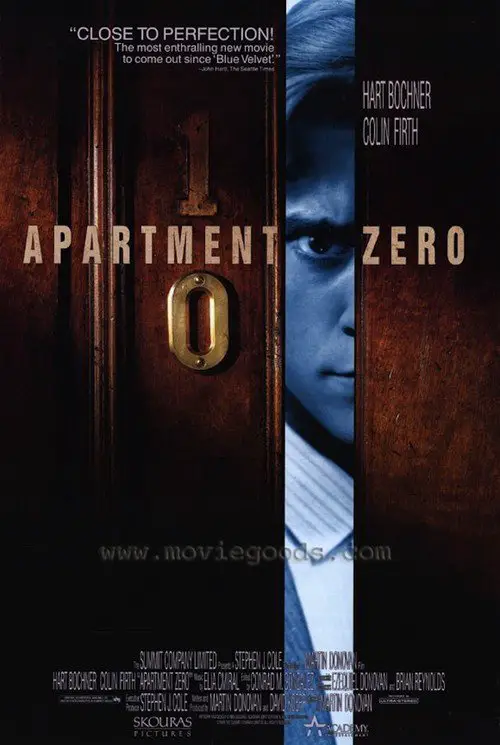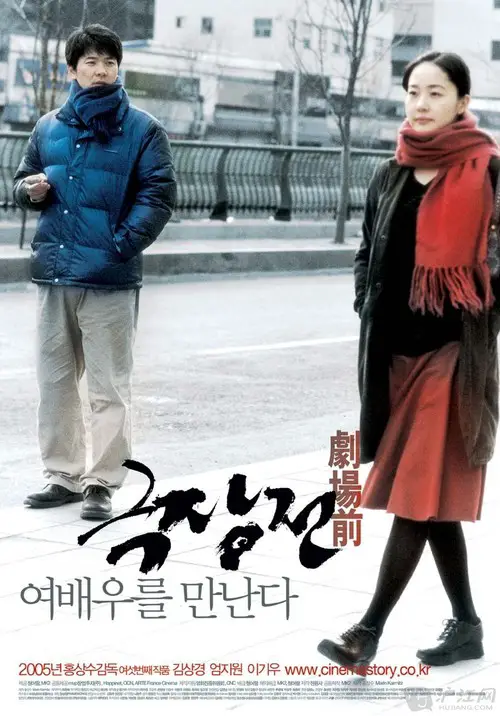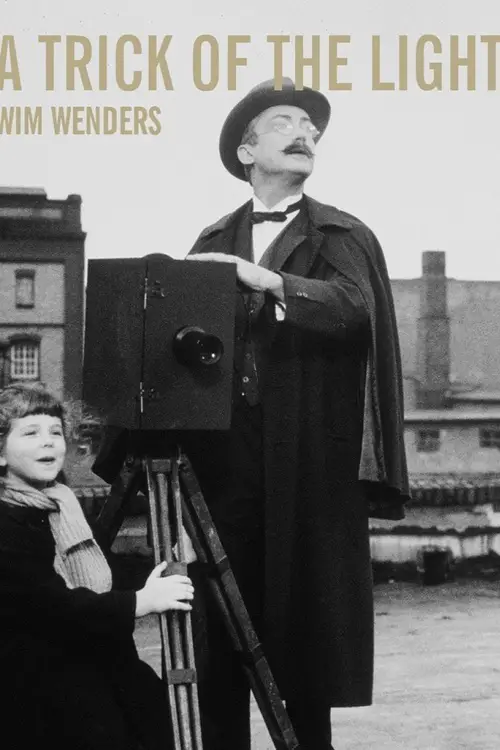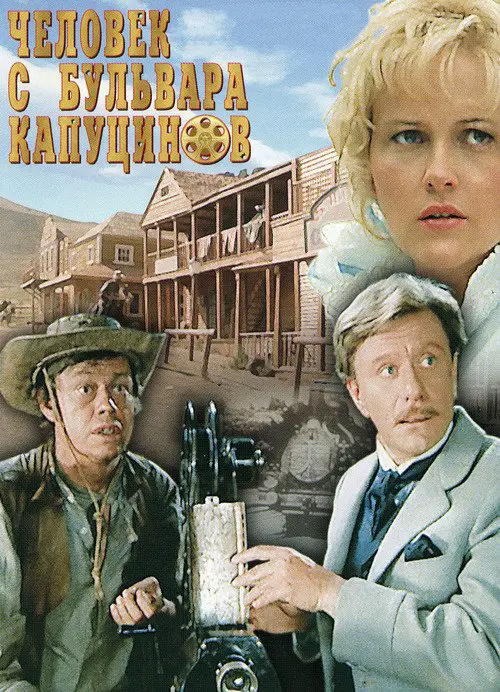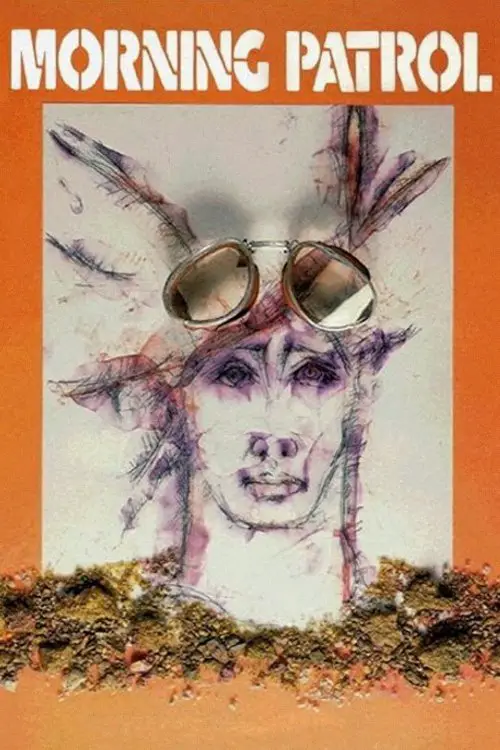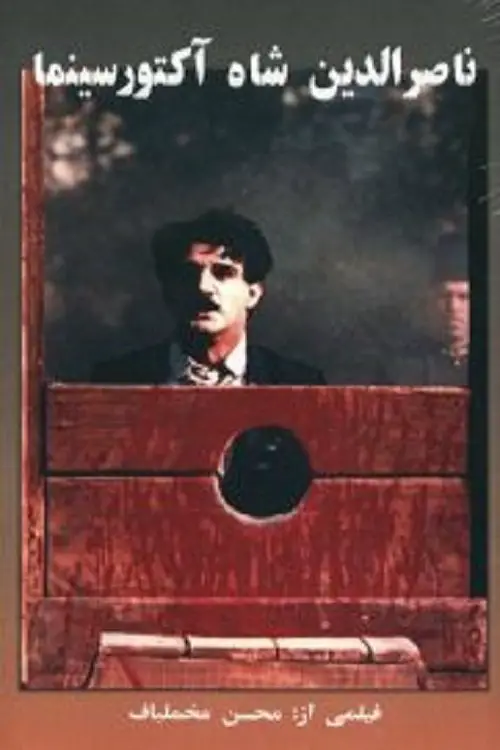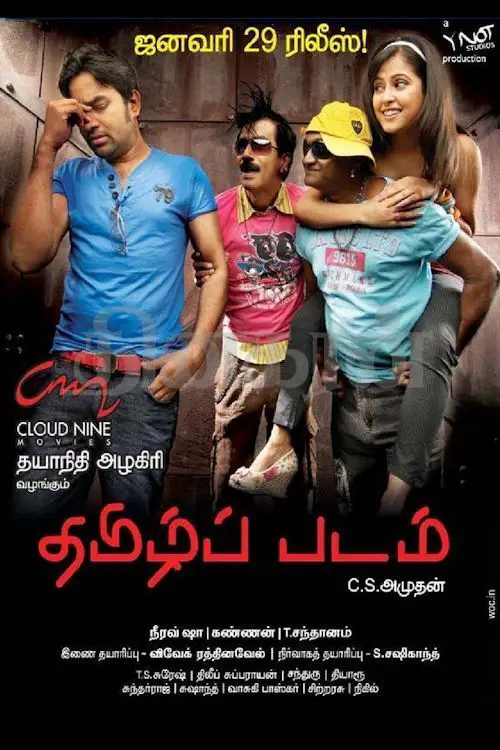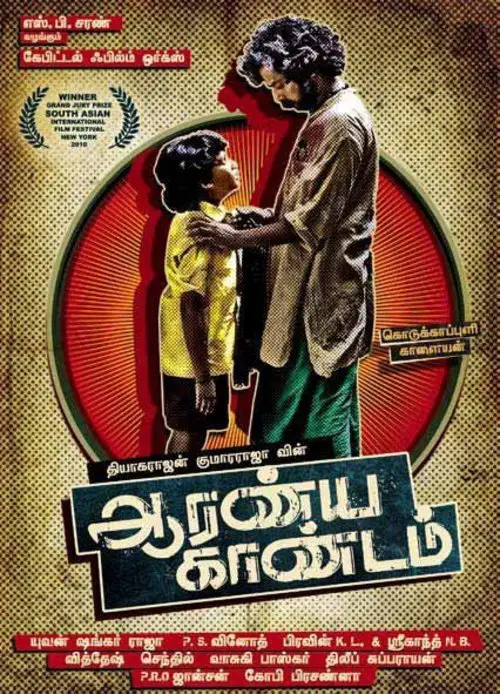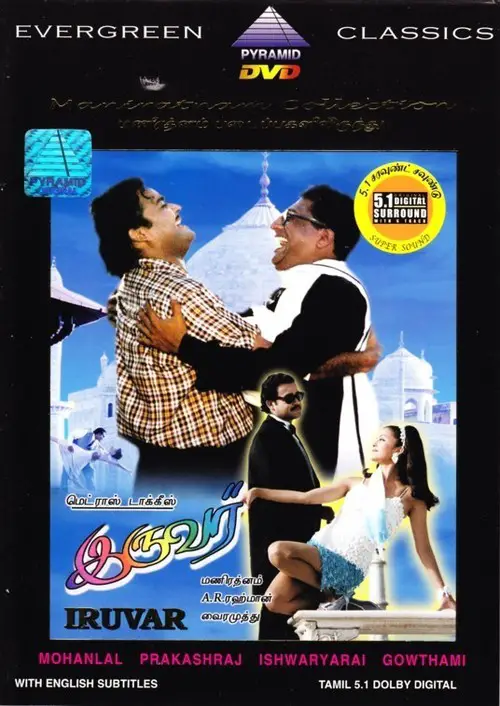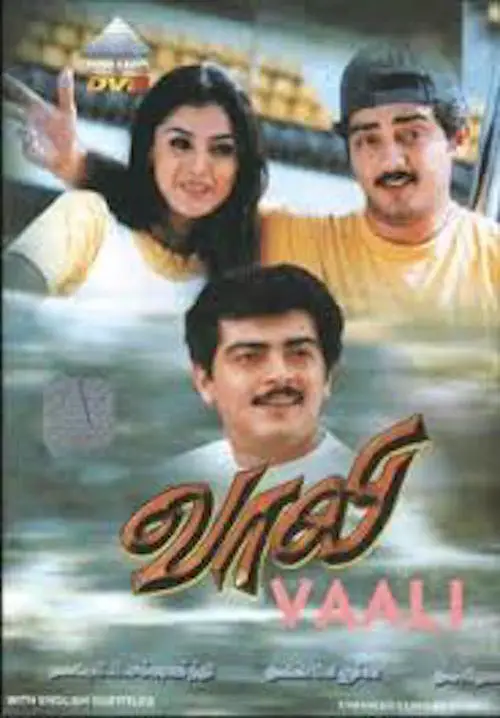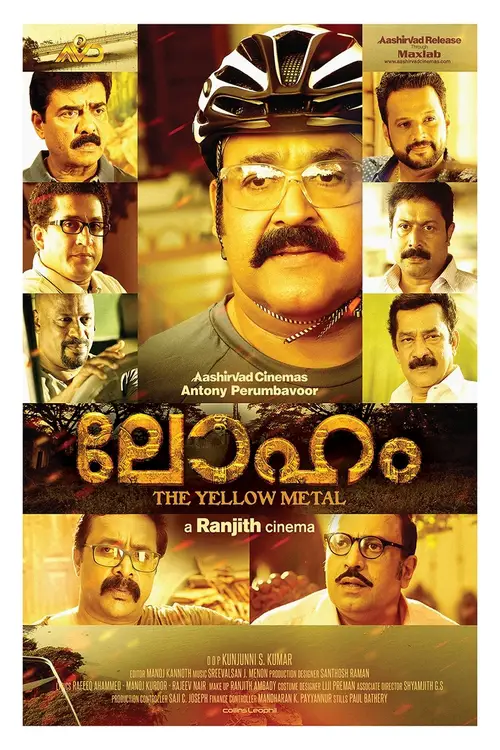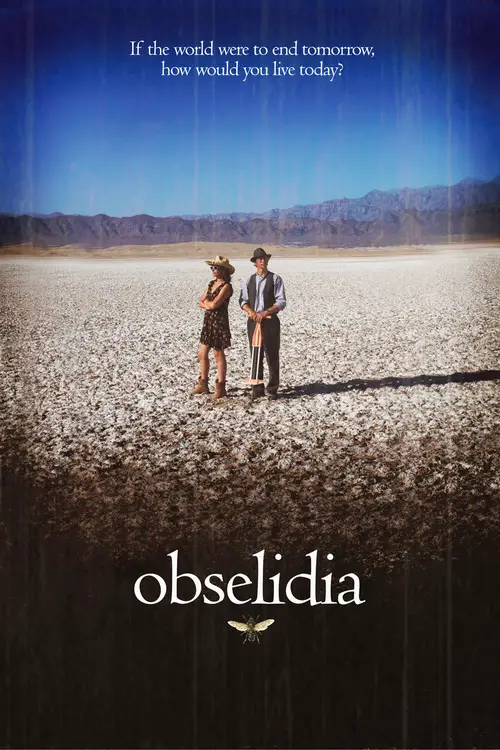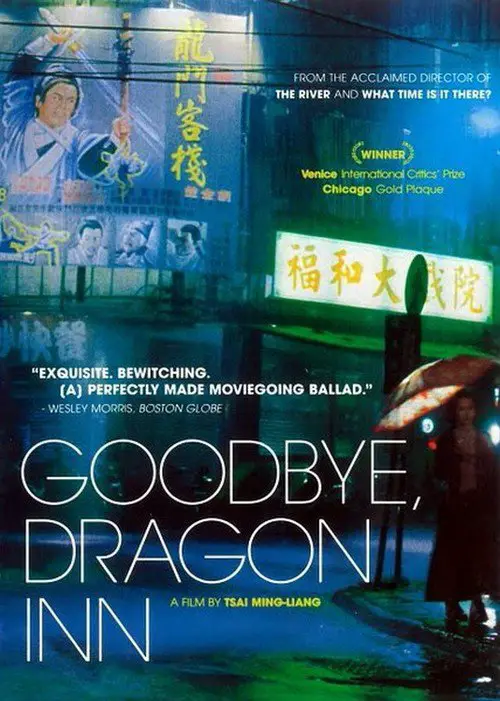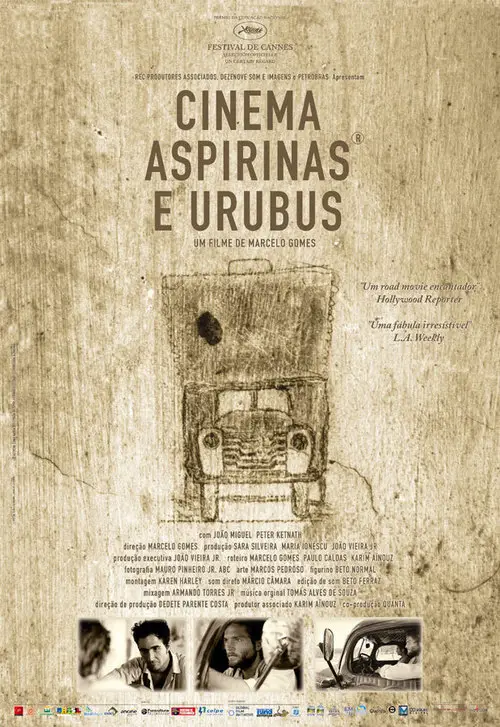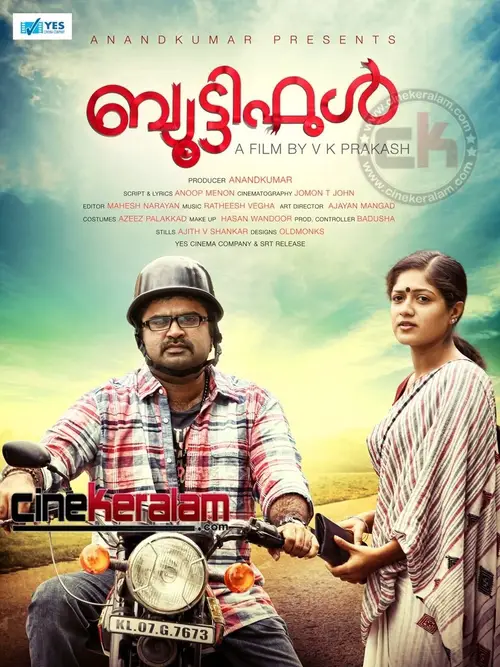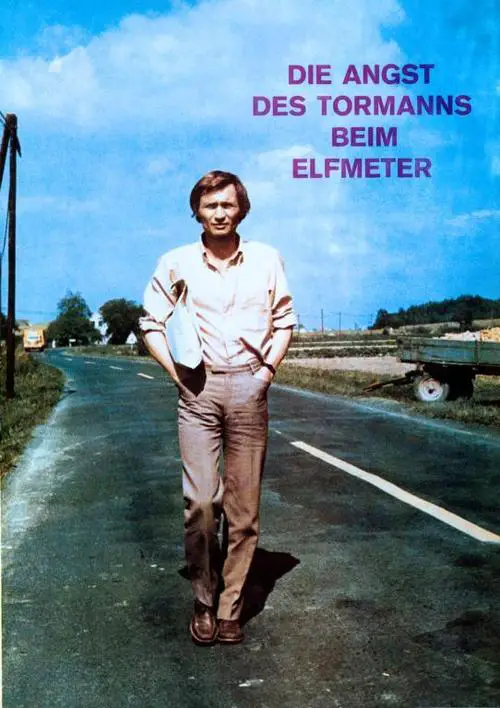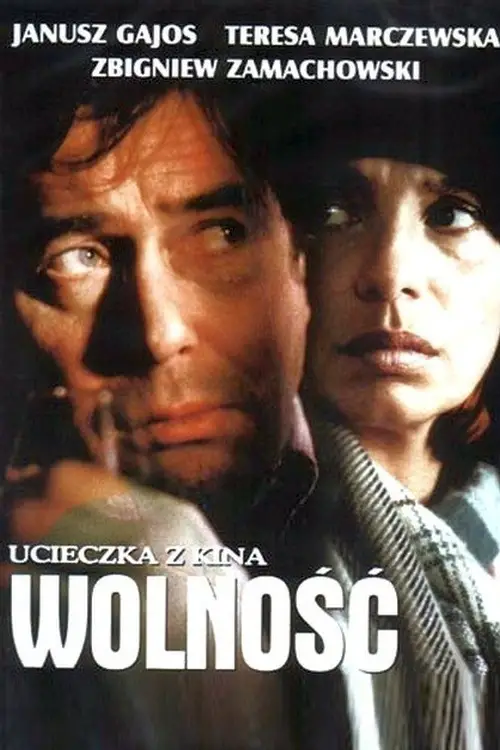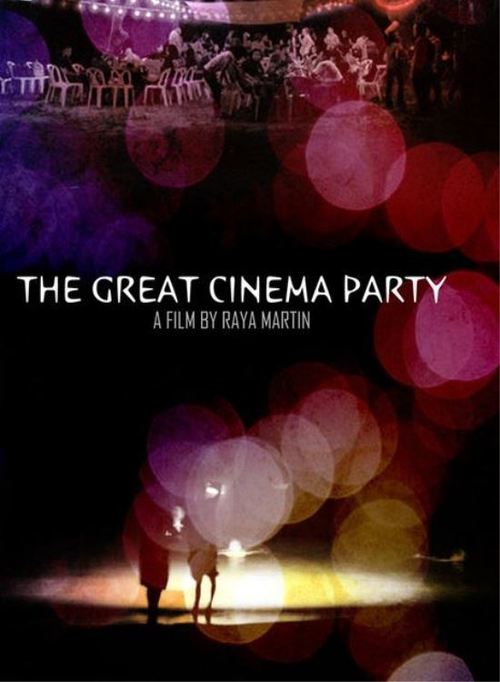My Voyage to Italy (1999)
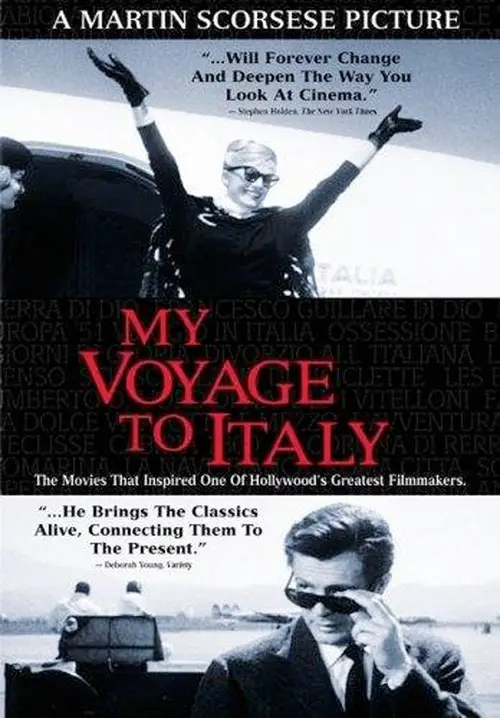
Similar movies
A documentary feature film that ties four narratives - from China, India, Scotland, and Tunisia - together with countless insights from venerable filmmakers and ordinary moviegoers. An aspiring actress in Mumbai battles to break into Bollywood; two friends in Scotland take a mobile film festival across the highlands; a young crew in Hong Kong embarks on the shooting of its first film; a Tunisian director anxiously anticipates the premiere of his controversial film at a major festival. These stories are woven together with scenes from video stores, projection booths, studios, cinemas, and slums into a vivid meditation on the power of cinema to shape our world.
THE PERVERT'S GUIDE TO CINEMA takes the viewer on an exhilarating ride through some of the greatest movies ever made. Serving as presenter and guide is the charismatic Slavoj Žižek, the Slovenian philosopher and psychoanalyst. With his engaging and passionate approach to thinking, Žižek delves into the hidden language of cinema, uncovering what movies can tell us about ourselves.
Since the invention of cinema, the standard format for recording moving images has been film. Over the past two decades, a new form of digital filmmaking has emerged, creating a groundbreaking evolution in the medium. Keanu Reeves explores the development of cinema and the impact of digital filmmaking via in-depth interviews with Hollywood masters, such as James Cameron, David Fincher, David Lynch, Christopher Nolan, Martin Scorsese, George Lucas, Steven Soderbergh, and many more.
As Australian cinema broke through to international audiences in the 1970s through respected art house films like Peter Weir's "Picnic At Hanging Rock," a new underground of low-budget exploitation filmmakers were turning out considerably less highbrow fare. Documentary filmmaker Mark Hartley explores this unbridled era of sex and violence, complete with clips from some of the scene's most outrageous flicks and interviews with the renegade filmmakers themselves.
This highly personal film essay demonstrates that Chinese cinema has dealt with questions of gender and sexuality more frankly and provocatively than any other national cinema. Yang ± Yin examines male bonding and phallic imagery in the swordplay and kung fu movies of the '60s and '70s; homosexuality; same-sex bonding and physical intimacy; the continuing emphasis on women's grievances in melodramas; and the phenomenon of Yam Kim-Fai, a Hong Kong actress who spent her life portraying men on and off the screen.
Today Iranian cinema is one of the most highly regarded national cinemas in the world, regularly winning festival awards and critical acclaim for films which combine remarkable artistry and social relevance. Iran: A Cinematographic Revolution traces the development of this film industry, which has always been closely intertwined with the country's tumultuous political history, from the decades-long reign of Reza Shah Pahlevi and his son, the rise of Khomeini and the birth of the Islamic Republic, the seizure by militants of the U.S. Embassy in Tehran, and the devastating war with Iraq.
A full journey from the beginning of "Swordplay" movies in Shanghai, growth in Hong Kong cinemas in the 60's and 70's and Ang Lee's epic "Crouching Tiger, Hidden Dragon" in 2000. The series also features interviews with such luminaries including John Woo, Chu Yuen, Lau Ka Leung, Gordon Lau Ka Fai, Sammo Hung, David Chiang and Cheng Pei Pei.
Hong Kong cinemas had a wide range of glamorous female stars during the golden age of the 60's and 70's. The series will take the audience on a sentimental journey to the good old days and once again look at the expansive epic costume dramas and huangmei operas in which actresses played both the male and female roles. Rare interviews with Sir Run Run Shaw, stars Ivy Ling Po, Shaw Yin Yin, Tanny Tie Ni and Cheng Pei Pei are also featured.
Documentary about the film maker Luis Bunuel. Surrealist master Luis Bunuel is a towering figure in the world of cinema history, directing such groundbreaking works as Un Chien Andalou, Exterminating Angels, and That Obscure Object of Desire, yet his personal life was clouded in myth and paradox. Though sexually diffident, he frequently worked in the erotic drama genre; though personally quite conservative, his films are florid, flamboyant, and utterly bizarre. This documentary, directed Jose Luis Lopez Linares, tries to illuminate some of these contradictions.
The âdigital revolutionâ reached the cinema late and was chiefly styled as a technological advancement. Today, in an era where analog celluloid strips are disappearing, and given the diversity of digital moving picture formats, there is much more at stake: Are the worldâs film archives on the brink of a dark age? Are we facing the massive loss of collective audiovisual memory? Is film dying, or just changing? CINEMA FUTURES travels to international locations and, together with renowned filmmakers, museum curators, historians and engineers, dramatizes the future of film and the cinema in the age of digital moving pictures.
The film builds up a portrait of a great Sudanese film-maker, Gadalla Gubara. At eighty-seven, he is one of the pioneers of cinema in Africa. He has recently lost his sight but still continues to film life in Sudan as no one before him. Through his oeuvre, Gadalla reveals to us a Sudan both mysterious and misunderstood. Despite censorship and lack of financial support over sixty years, he has produced cinema that is independent and unique in a country where freedom of expression is a rare luxury.
CINEMA NOVO is a movie-essay that investigates poetically the most important movement of Latin America cinema, through the thoughts of its main auteurs: Nelson Pereira dos Santos, Glauber Rocha, Leon Hirszman, Joaquim Pedro de Andrade, Ruy Guerra, Walter Lima Jr., Paulo César Saraceni, among others.
This portrait of the French film theorist and avant-garde director Jean Epstein (1897-1953) concentrates on the period when he filmed in Brittany, the spot where he became inspired by the sea. Using rare archive footage, Jean Epstein, Young Oceans of Cinema also looks at Epsteinâs views on the specificity of the film medium.
The artistry, triumph and lifelong friendship of the great cinematographers Laszlo Kovacs and Vilmos Zsigmond. With film school equipment, they shoot the Soviet crackdown of the 1956 Hungarian Revolution. As refugees they struggle in Hollywood, finally breaking into the mainstream with their pivotal contribution to the "American New Wave."
In 2001 Jack Cardiff (1914-2009) became the first director of photography in the history of the Academy Awards to win an Honorary Oscar. But the first time he clasped the famous statuette in his hand was a half-century earlier when his Technicolor camerawork was awarded for Powell and Pressburger's Black Narcissus. Beyond John Huston's The African Queen and King Vidor's War and Peace, the films of the British-Hungarian creative duo (The Red Shoes and A Matter of Life and Death too) guaranteed immortality for the renowned cameraman whose career spanned seventy years.
A revolutionary film about the cinematic genius of North Korea's late Dear Leader Kim Jung-IL, with a groundbreaking experiment at its heart - a propaganda film, made according to the rules of his 1987 manifesto. Through the shared love of cinema, AIM HIGH IN CREATION! forges an astonishing new bond between the hidden filmmakers of North Korea and their Free World collaborators. Revealing an unexpected truth about the most isolated nation on earth: filmmakers, no matter where they live, are family.
Filmmaking icon Agnès Varda, the award-winning director regarded by many as the grandmother of the French new wave, turns the camera on herself with this unique autobiographical documentary. Composed of film excerpts and elaborate dramatic re-creations, Varda's self-portrait recounts the highs and lows of her professional career, the many friendships that affected her life and her longtime marriage to cinematic giant Jacques Demy.
n Scénario du film Passion, Godard constructs a lyrical study of the cinematic and creative process by deconstructing the story of his 1982 film Passion. âI didnât want to write the script,â he states, âI wanted to see it.â Positioning himself in a video editing suite in front of a white film screen that evokes for him the âfamous blank page of Mallarmé,â Godard uses video as a sketchbook with which to reconceive the film. The result is a philosophical, often humorous rumination on the desire and labor that inform the conceptual and image making process of the cinema. âeai.org
A Chadian film director who lives and works in France (Haroun) returns home upon the death of his mother. He is shocked at the degraded state of the country and the national cinema. The filmmaker decides to make a film dedicated to his mother entitled Bye Bye Africa but immediately encounters major problems. Cinemas have closed and financing is impossible to secure. The director reunites with an old girlfriend (Yelena), who was shunned by Chadians who could not distinguish between film and reality after appearing in one of his previous films as an HIV victim. Haroun learns about the destruction of the African cinema from directors in neighboring countries, but also finds Issa Serge Coelo shooting his first film, Daressalam. Things go badly and, convinced that it is impossible to make films in Africa, Haroun departs Chad in despair, leaving his film camera to a young boy who had been assisting him.
The Story of Film: An Odyssey, written and directed by award-winning film-maker Mark Cousins, is the story of international cinema told through the history of cinematic innovation. Five years in the making, The Story of Film: An Odyssey covers six continents and 12 decades, showing how film-makers are influenced both by the historical events of their times, and by each other. It provides a worldwide guided tour of the greatest movies ever made; an epic tale that starts in nickelodeons and ends as a multi-billion-dollar globalised digital industry. Described as a love letter to the movies, Cousins visits the key sites in the history of cinema; from Hollywood to Mumbai; from Hitchcock s London to the village where Pather Panchali was shot, and features interviews with legendary filmmakers and actors including Stanley Donen, Kyoko Kagawa, Gus van Sant, Lars Von Trier, Claire Denis, Bernardo Bertolucci, Robert Towne, Jane Campion and Claudia Cardinale.
Take a trip back to a time when New York City wasn't all glitz and glamour as filmmaker Celine Danhier offers a look at the birth of "No Wave Cinema" and the vibrant art scene that exploded out of the East Village in the late '70s. In the years before Ronald Reagan took office, Manhattan was in ruins. But true art has never come from comfort, and it was precisely those dire circumstances that inspired artists like Jim Jarmusch, Lizzy Borden, and Amos Poe to produce some of their best works. Taking their cues from punk rock and new wave music, these young maverick filmmakers confronted viewers with a stark reality that stood in powerful contrast to the escapist product being churned out by Hollywood. ~ Jason Buchanan, Rovi
Shot in France, England, Switzerland and the United States, this documentary covers director Alejandro Jodorowsky (El Topo, Holy Mountain, Santa Sangre) and his 1974 Quixotic attempt to adapt the seminal sci-fi novel Dune into a feature film. After spending 2 years and millions of dollars, the massive undertaking eventually fell apart, but the artists Jodorowsky assembled for the legendary project continued to work together. This group of artists, or his âwarriorsâ as Jodorowsky named them, went on to define modern sci-fi cinema with such films as Alien, Blade Runner, Star Wars and Total Recall.
Malegaon, a small town tucked away near the heart of India geographically, is fraught with communal tension and under severe economic depression. To escape the harsh reality of their world, its people seek refuge in the fantastical world of cinema. This passion for cinema has spurred a group of cinema enthusiasts to make their own films-quirky, low budget, socially aware and notoriously funny spoofs of Bollywood films.
In 1973, the Loud family became a television sensation of a new kind. It was long before a metal rock star showed his eccentric family on the small screen and decades before housewives had screaming matches with each other on camera in public. CINEMA VERITE tells the behind-the-scenes story of the groundbreaking documentary "An American Family," which chronicled the lives of the Louds in the early 1970s and catapulted the Santa Barbara family to notoriety while creating a new television genre: the reality TV series.
Cinema Company is a 2012 Malayalam romantic comedy drama film written and directed by Mamas and starring mainly newcomers. Basil, Sanjeev, Shruthi and Badri play the roles of four intimate friends who dream to make a film. Plot
The film traces the journey of four friends as they strive to give life to their dream cinema. And how their lives are upturned as the cinema becomes their life.
A biopic based on the life story of J.C. Daniel, the pioneer of Malayalam cinema. It is a detailed account on Daniel's life, making of his film Vigathakumaran and the tragic story of Vigathakumaran's heroine P. K. Rosie. The film is particularly based on the novel Nashta Naayika by Vinu Abraham (which details the story of Rosie) and the biography of J. C. Daniel by Chelangatt Gopalakrishnan.
Sachin is an engineering graduate from a middle class Mumbai family, but his passion is for the world of cinema. He is dreaming and planning for a future as a director, when he sees Jessie. It is love at first sight for Sachin. However, Jessie is from a strict Malayali Christian family, and her parents would never approve of their romance. The other problem is Jessie insists that she doesn't want a romantic relationship, but wants only to be friends. Of all the girls in the world why did Sachin have to fall for Jessie?
In Seoul, the paths of two men and one woman intersect and move apart from one another, centering around their love for cinema. A suicidal student meets a young woman who decides to follow him in his fatal gesture. Coming out of a cinema, Tongsu, an unsuccessful filmmaker, spots a beautiful young woman, and recognizes her : she is the main actress in the film he has just seen. The life of this wavering and distressed young man strangely echoes the one of the young man from the beginning...
A woman is walking alone through an abandoned city. She approaches the forbidden zone and tries to pass through. Everywhere the Morning Patrol and deceptive traps are watching. The city itself is alive but uncontrolled. Computer voices warn non-existing inhabitants to leave the city. The communication system works... cinemas show films... classic faces of a past era flash across TV screens. She is confronted by one of the few survivors guarding the city. They will come close to each other ; they will try to recall the past. Together they unravel their tangled memory - threads of this catastrophe and decide to penetrate the zone together ; They are linked by the bonds of violence and death since no other behaviour is possible in this kind of world. Is there an end? Is there hope and any future since no person that was allowed through ever returned to tell us whether the freedom of the sea exists.
This film was made in Iran. The protagonist looks almost like Charlie Chaplain. He is given a chance to make films for the emperor. There are many scenes of people running on and off of movie screens, and in and out of old kinetiscope projectors. Some people might find this erratic, and tedious, but it helps project an idea of fantasy, or forgetting about ones problems, becoming engrossed in a film.
Thamizh Padam is a 2010 Indian Tamil language spoof film written and directed by debutant C. S. Amudhan. The film stars Shiva and Disha Pandey in the lead roles. The film's plot parodies contemporary commercial films in Tamil cinema, mocking the stereotypical scenes.[3][4]. The film was distributed by Dhayanidhi Alagiri's Cloud Nine Movies, and it was released on 29 January 2010 and won critical acclaim and commercial success at the box office.
Aaranya Kaandam (Tamil: à®à®°à®£à¯à®¯ à®à®¾à®£à¯à®à®®à¯; English: Jungle chapter; English title: Anima and Persona) is a 2011 Indian Tamil action film, written and directed by newcomer Thiagarajan Kumararaja. It is supposedly the first neo-noir film in Tamil cinema. The story takes place in a day in the lives of the six protagonists, played by Jackie Shroff, Ravi Krishna, Sampath Raj and newcomers [Yasmin Ponnappa], Somasundaram and Master Vasanth. Produced by S. P. B. Charan's Capital Film Works, the film features musical score by Yuvan Shankar Raja and cinematography by P. S. Vinod and editing handled by the duo Praveen K. L. and N. B. Srikanth.
Vaali (is a 1999 Tamil thriller film written and directed by S. J. Suryah. The film stars Ajith Kumar in a dual role with Simran appearing in another leading role. The supporting cast of the film include Jyothika in her debut venture, Livingston and Vivek. The film's music is composed by the music director, Deva while Jeeva was in charge of the cinematography. The film released on 1 May 1999 and went to become a commercial success as well as becoming critically acclaimed.
2015 Malayalam thriller film written and directed by Ranjith. It features Mohanlal as Raju and Andrea Jeremiah as Jayanthi in lead roles along with Ajmal Ameer, Siddique, Mythili, Tini Tom, Vijayaraghavan, Renji Panicker and V. K. Prakash in significant roles. The film is produced by Antony Perumbavoor under the banner Aashirvad Cinemas.
Goodbye, Dragon Inn is set in the approximately ninety minutes of the last feature at an old Taipei cinema that is closing down, showing King Hu's 1967 sword-fighting classic Dragon Inn. Only a few people are present in the cinema, and a variety of subplots are developed around them. Throughout the film, the ticket woman tries to find the projectionist, searching for him in order to present him with a steamed bun. A young Japanese tourist wanders around the cinema in search of a homosexual encounter. An older man tells him that the cinema is haunted. An old man, who was one of the actors who appeared in the original Dragon Inn, watches the film with tears in his eyes. Outside the theater, he encounters an older man who had been watching the film with his grandson; this man also starred in the original film. The film is shot with almost no camera movement, most shots lasting well over thirty seconds. There are only about a dozen of lines of dialogue.
In 1942, the lonely German Johann travels through the arid roads in the country of the Northeast of Brazil in his truck selling aspirins in small villages, using advertisement movies to promote the medicine. He meets the drifter Ranulpho, who intends to go to Rio de Janeiro seeking a better life, and gives a ride to the man. While traveling together, they develop a close friendship, but on 31 August 1942, Brazil declares war to Germany and Johann has to decide if he should return to his home country and fight in the war, or stay in Brazil in a concentration camp; but the option of moving to Amazonas with the migrants of the drought seems to be feasible
Lesa Lesa is a 2003 Tamil film directed by Priyadarshan and produced by Vikram Singh. The film features Shaam and Trisha in the lead roles and Madhavan in an extended guest appearance, while Vivek, Radharavi and Sreenivasan play supporting roles. Cinematography is handled by Tirru, while the film's score and soundtrack were composed by Harris Jayaraj. The story is partially adapted from the 1998 Malayalam film Summer in Bethlehem, which was co-written by Ranjith and Venu Nagavally.
Beautiful is a 2011 Indian Malayalam musical drama thriller film written by Anoop Menon and directed by V. K. Prakash. The film stars Jayasurya, Anoop Menon and Meghana Raj in the lead roles. The cinematography was by Jomon T. John and the music was composed by Ratheesh Vegha. It tells the story about the intense bonding of two friends, one quadriplegic and other a musician. The film released on 2 December 2011 to predominantly positive reviews
The Goalie's Anxiety at the Penalty Kick is a 1972 German language drama film directed by Wim Wenders. It was adapted from a novella by Wenders' long-time collaborator Peter Handke. A goalkeeper is sent off during a game for committing a foul. He spends the night with a cinema cashier, whom he afterwards kills. Although a type of detective film, it is more slow moving and contemplative than other films of the genre. It explores the monotony of the murderer's existence and, like many of Wenders' films, the overwhelming cultural influence of America in post-war West Germany.
The film is set just before Poland's communist regime came to an end, and the central character is a provincial censor (Janusz Gajos), a tired, sloppy, lonely man, whose wife has long since left him. For him, censorship is both an art and a game, but he does not enjoy it. During a screening of a sentimental Polish melodrama called "Daybreak" at the Liberty cinema across the road from the censor's office, the actors start to rebel and refuse to speak their lines. There is anarchy and when the censor is unable to control the situation, senior party officials are called in. Eventually a film critic notes that the situation reminds of "The Purple Rose of Cairo" by Woody Allen and brings a reel of the film to demonstrate. The officials watch the film with amusement until another mix-up occurs: the second projector is turned on accidentally and superimposes "Daybreak" over "Purple Rose".
A group of friends, sharing a passion for cinema, assemble in Corregidor, a small island in Manila Bay that has preserved relics from the Pacific War as its foremost attractions. There, they explore the island and retire in a rustic mansion used once to make silent films. Outside the city, the woods and sea become a meeting place for more movie personalities and it all becomes a celebration of what was left behind.
© Valossa 2015–2025
| Privacy Policy
